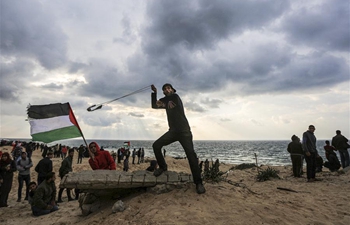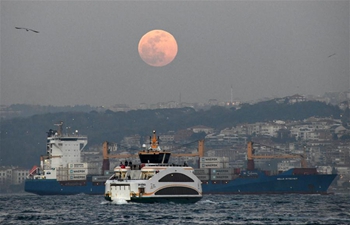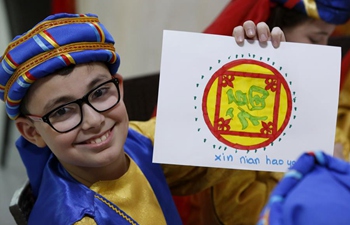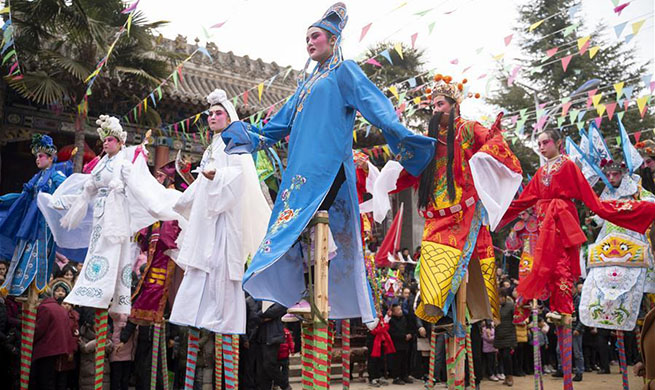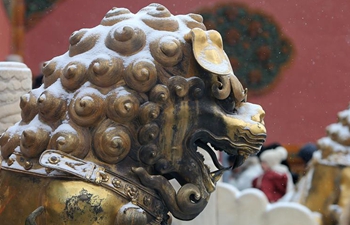JUBA, Feb. 20 (Xinhua) -- By the time Angelina Gatbang Biel left her home in Malakal, a town in northeast of South Sudan about five years ago, everything including the family house, cloths and jewelry had already been reduced into ruins and her husband disappeared.
"What happened in 2013 was very bad. We lost all our belongings," Biel told Xinhua in Old Fangak, a remote, but densely populated area in the former Jonglei region in northeast South Sudan.
Like thousands of others, Beil and her two children were displaced from what was previously one of South Sudan's largest cities but reduced into "ghost town" in late 2013 when civil war erupted in the east African country.
Now living some 100 kilometers away from Malakal, the 44-year-old said she has never heard from her husband since they got separated nearly six years ago.
Biel said she does not even know whether he is alive or dead.
South Sudan's civil war has created one of the world's biggest displacement crises as some 4 million people were displaced, according to UN estimates.
A peace deal signed in August 2015 between the rival leaders under UN led to the establishment of a transitional unity government but it was shattered by renewed fighting in July 2016.
Biel said a new peace deal signed by several warring factions in September 2018 gives her renewed hope of finding her husband and also rebuilding her shattered family.
"If this is a real peace agreement, I want to find out exactly where my husband is. This is my first plan after peace," Biel said.
"We are looking forward that if it (peace) can be real, then one should be able to live his or her normal life. That's what we are looking forward. I want to go back to where I come from," said Beil.
Beil is not alone in the struggle. Sarah Maleth and her husband fled Malakal in 2014, and has since been residing at her parents' home in Fangak.
"We are very tired of suffering. This conflict has killed many people and left us very poor. Let me say I'm lucky to have both my parents alive. Those without husbands or parents are suffering too much," the 20-year-old Maleth said.
She said although she still feels reluctant to leave old Fangak, which has acted as safe haven for thousands of displaced people for the past five years, she would go home if the peace deal hold.
"I hope with the signing of the peace, I can go and stay with my husband, we have been separated from each other for a long time," Maleth said.
"I urge our leaders who signed the peace deal to hold it firm and never let it down again. So many people have died, so many are separated from their families. If this peace can last, I think most of the problems facing us will end," she added.
Despite the fragile situation in the world's youngest country, the UN refugee agency, UNHCR, reported last month that some 20,000 South Sudanese refugees had voluntarily returned home from Uganda.
Samuel Jikany, deputy head of Relief and Rehabilitation in Old Fangak, said since the signing of the agreement last year, many families visited their abandoned homes for the first time in five years.
Jikany said some displaced families have expressed desire to return home but are still betting on the success of the latest peace deal.
"It was a joy that the peace agreement has been signed. People begun to move to locations that they did not access for the last five years," Jikany said.
"The community is looking forward to going back to their places if there is going to be real peace," he said.
